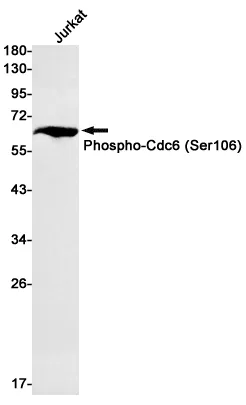Summary
Performance
Immunogen
Application
Background
SFRP proteins appear to act as tumor suppressors, with loss of expression or function correlating with many invasive forms of cancer. Deletion of the corresponding SFRP1 gene and promoter hypermethylation leading to gene silencing has been reported in a number of cancers. Abnormal expression of SRFP1 and other Wnt signaling proteins is associated with some cases of retinitis pigmentosa. Soluble frizzled-related proteins (sFRPS) function as modulators of Wnt signaling through direct interaction with Wnts. They have a role in regulating cell growth and differentiation in specific cell types. SFRP1 decreases intracellular beta-catenin levels (By similarity). Has antiproliferative effects on vascular cells, in vitro and in vivo, and can induce, in vivo, an angiogenic response. In vascular cell cycle, delays the G1 phase and entry into the S phase (By similarity). In kidney development, inhibits tubule formation and bud growth in metanephroi (By similarity). Inhibits WNT1/WNT4-mediated TCF- dependent transcription.
Research Area




